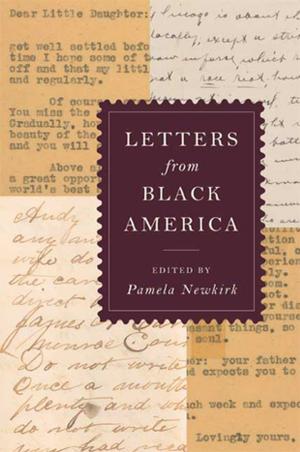The Imprisoned Guest
Samuel Howe and Laura Bridgman, The Original Deaf-Blind Girl
Biography & Memoir, Historical| Author: | Elisabeth Gitter | ISBN: | 9781429931298 |
| Publisher: | Farrar, Straus and Giroux | Publication: | April 1, 2011 |
| Imprint: | Farrar, Straus and Giroux | Language: | English |
| Author: | Elisabeth Gitter |
| ISBN: | 9781429931298 |
| Publisher: | Farrar, Straus and Giroux |
| Publication: | April 1, 2011 |
| Imprint: | Farrar, Straus and Giroux |
| Language: | English |
The resurrected story of a deaf-blind girl and the man who brought her out of silence.
In 1837, Samuel Gridley Howe, director of Boston's Perkins Institution for the Blind, heard about a bright, deaf-blind seven-year-old, the daughter of New Hampshire farmers. At once he resolved to rescue her from the "darkness and silence of the tomb." And indeed, thanks to Howe and an extraordinary group of female teachers, Laura Bridgman learned to finger spell, to read raised letters, and to write legibly and even eloquently.
Philosophers, poets, educators, theologians, and early psychologists hailed Laura as a moral inspiration and a living laboratory for the most controversial ideas of the day. She quickly became a major tourist attraction, and many influential writers and reformers visited her or wrote about her. But as the Civil War loomed and her girlish appeal faded, the public began to lose interest. By the time Laura died in 1889, she had been wholly eclipsed by the prettier, more ingratiating Helen Keller.
The Imprisoned Guest retrieves Laura Bridgman's forgotten life, placing it in the context of nineteenth-century American social, intellectual, and cultural history. Her troubling, tumultuous relationship with Howe, who rode Laura's achievements to his own fame but could not cope with the intense, demanding adult she became, sheds light on the contradictory attitudes of a "progressive" era in which we can find some precursors of our own.
The resurrected story of a deaf-blind girl and the man who brought her out of silence.
In 1837, Samuel Gridley Howe, director of Boston's Perkins Institution for the Blind, heard about a bright, deaf-blind seven-year-old, the daughter of New Hampshire farmers. At once he resolved to rescue her from the "darkness and silence of the tomb." And indeed, thanks to Howe and an extraordinary group of female teachers, Laura Bridgman learned to finger spell, to read raised letters, and to write legibly and even eloquently.
Philosophers, poets, educators, theologians, and early psychologists hailed Laura as a moral inspiration and a living laboratory for the most controversial ideas of the day. She quickly became a major tourist attraction, and many influential writers and reformers visited her or wrote about her. But as the Civil War loomed and her girlish appeal faded, the public began to lose interest. By the time Laura died in 1889, she had been wholly eclipsed by the prettier, more ingratiating Helen Keller.
The Imprisoned Guest retrieves Laura Bridgman's forgotten life, placing it in the context of nineteenth-century American social, intellectual, and cultural history. Her troubling, tumultuous relationship with Howe, who rode Laura's achievements to his own fame but could not cope with the intense, demanding adult she became, sheds light on the contradictory attitudes of a "progressive" era in which we can find some precursors of our own.















